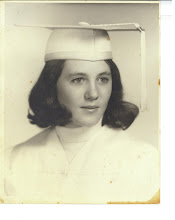I had a fairly standard education. Elementary School, High School, College. I took a few classes at The New School for Social Reasearch as a non-matriculated student. Mostly, though, I've learned what I've learned as an adult through all the different jobs I've had, the experiences I've gone through, and in large part via my creative endeavors.
As an actress and singer, I read voraciously in the connected fields. Biographies of writers, composers, singers and actors. I read hundreds of plays, from the Greeks to Shakespeare to Sam Shepard and Wendy Wasserstein. I read theatre history and theare production books as well as acting instruction manuals, and voice technique books.
Now as a writer, I am reading everything from craft titles on individual aspects of creative writing, to motivational guidebooks, prompt books, marketing and sales and submission how-tos and of course, dozens of romances, mysteries, thrillers, paranormals, and the oodles of research books and material that I use for creating compelling and complex stories.
So it comes as no surprise that I have a wealth of extremely variant information at my disposal. As I like to say, I'd be great on Jeopardy but otherwise my knowledge and $2.00 will get me on the subway. I am always tickled, however, when I discover one area of knowledge able to invest another area of endeavor with a little something extra.
I have found to my delight that my work as an actress has been extremely useful, dare I say vital, in my work as a writer. For one thing I focus on creating dialogue and characters via the methods I learned in the theatre. Since dramatic literature - plays - have no exposition or narrative, nothing but dialogue or spoken words (be they monologues or what have you), it is a great method for studying the creation of dialogue that is important, and that moves the plot and conveys details about the story and the characters, with minimal narration or excessive expository description that can slow a story down or bog it down in unnecessary stuff.
I also build my written characters just as I built the characters I was performing. By creating histories for them, knowing their past, even when the details had nothing to do with the play. Because by giving my characters as much personal detail, as many characteristics, and motivations as I can, I find their responses far easier to come by. I know how they think and react and how their present lives are infused by their pasts. Studying various personality traits, characteristics, tics, phobias, and how past events have shaped them - how their childhoods form their adult actions and reactions. Why they are motivated to do something, or fearful of doing something else. Why they have a particular personality - withdrawn, solitary, independent or outgoing, loyal and gregarious. How they'll react to the hero or heroine - or the villain - of a piece, all of which makes writing the story greatly easier. I never have to stop and ponder, "what would they do..." because I've created their personalities and I KNOW what they will do. Be it in a disaster or in the bedroom.
It is rather a bit like a Dr. Frankenstein experience to create a living, breathing human being - at least on paper - but it can be thrilling and exhilarating when I come to a point in a story where I know exactly what, and why, my character is going to do. Which allows me to move the story forward and makes my characters' behavior immediate and real to the reader.
And of course, when I pass on helpful suggestions (and I do that a lot - I hope I'm not a pest, but I love to be able to make my past experiences and what I've learned as useful to as many as possible)it makes me feel the time spent on these past pursuits is that much more valuable.
So today, when I made a recommendation that my fellow writers study plays for the purpose of examining how to use dialogue to be efficient, to create distinct characters and to understand the way to move a plot and expose details without exposition and excessive narrative, it felt great. And it reminded me of my favorite plays (Cat on a Hot Tin Roof, A Streetcar Named Desire) and playwright (Tennesee Williams). Which brought me to remember an exquisite little 2-character play called TALK TO ME LIKE THE RAIN AND LET ME LISTEN, a bittersweet, poignant piece that exposes the man and woman's deepest yearnings. It brought me back and reminded me of the joys of that genre of literature and how well it works for me now, as a writer, to have experienced it.
And I am now reminded of one of the greatest character studies of all, one that was sent to me from England by a fellow actor friend. It is Anthony Sher's The Year of the King and covers his work on the character of Richard III - and how he morphed himself into the character for his acclaimed portrayal. It is an excrutiatingly in-depth look at how a character is built. And I've never forgotten it.
So, now I have a great idea for a tortured hero and all I need is the story to go with him! Hmm. Something about an unjustly accused royal with a penchant for another man's wife?
Eureka!
Friday, June 12, 2009
Loving What I've Learned
Subscribe to:
Post Comments (Atom)

1 comment:
Thanks for sharing I've been looking for something just like this.
Yüz Germe
Post a Comment